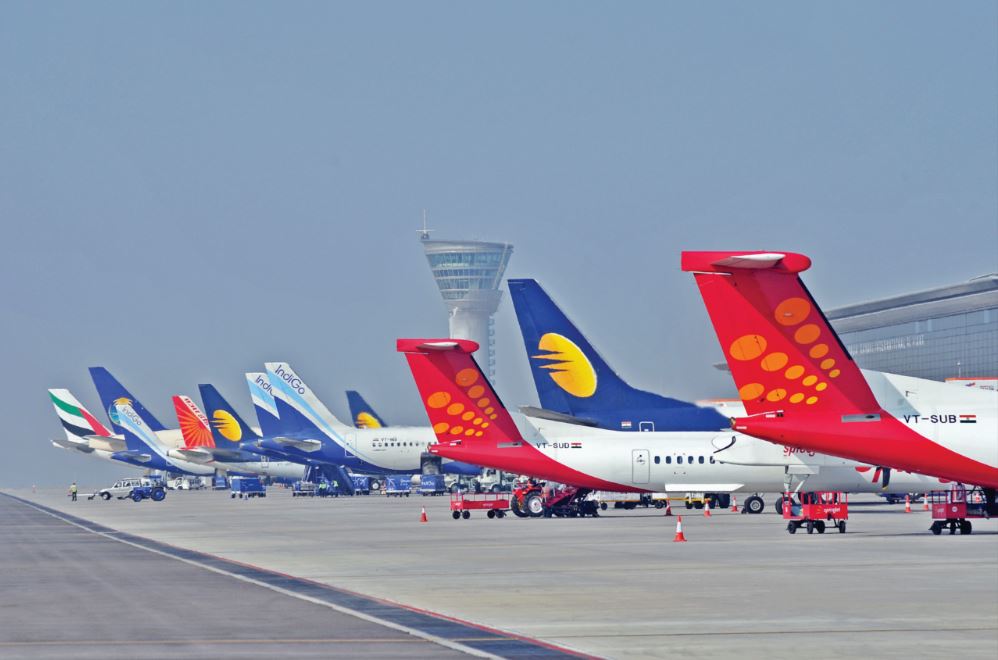Parliamentary Panel for Cap on Air Fares
AIBM
January - March 2018
As the parliamentary panel proposes a cap on airfares and cancellation charges, Civil Aviation Minister Ashok Gajapathi Raju disapproves, while the DGCA writes to airlines seeking more data.
The Directorate General of Civil Aviation (DGCA) recently wrote to airline operators asking them to give details about their cancellation charge policy and the amount by which this fee has been revised in the recent past. As of now, passengers are charged a steep cancellation fee of INR 3,000 per domestic traveller.
A senior DGCA official told a national daily that they (DGCA) had issued a Civil Aviation Requirement (CAR or rules for airlines) in the previous year, which mandates that the cancellation charge cannot be more than the base fare plus the fuel surcharge component of a ticket. According to him, “The fuel surcharge was kept in this calculation as airlines frequently sell promotional tickets with low base fares of INR 500 or so. We have sought data from airlines and will analyse if their current cancellation charge is in violation of this CAR.”
Closely following this, on December 5, a parliamentary panel recommended fixing an upper limit on airline fares, saying the pricing mechanism used in western countries cannot be applied to India. The cap, it said, should be fixed by the Ministry of Civil Aviation (MoCA) depending on the sector.
Capping airfares will push up ticket costs, Union Minister for Civil Aviation Ashok Gajapathi Raju stated. The panel on Transport, Tourism and Culture has also accused carriers of not passing on the reduction in Aviation Turbine Fuel (ATF) to customers. Other recommendations of the panel included restraining airlines from charging more than 50 pc of the base fare on cancellation. The passenger should be refunded the tax and fuel surcharge as well, the panel said, terming the current system as ‘arbitrary’. The panel also raised complaints of non-availability of food and water onboard low-cost airlines and asked airlines that fall into this category to make food available ‘on demand’.
The civil aviation minister argued that there were only 1.7 pc of cases where fares were higher than normal, and putting a cap on them will result in pushing up fares for 98 pc of the cases.
“We did an analysis and we took up ticketing of an entire year and we realised 1.7 pc of the ticketing was a matter of concern and that was mostly in certain sectors. If we go into floors and caps, we will be pushing up the cost for 98 pc to reduce the cost for less than two pc,” Raju stated.
Minister of State for Civil Aviation, Jayant Sinha said that dynamic pricing practised by Indian airlines is a global practice. “Dynamic pricing in our country is a global practice and we have not seen that our airlines are doing anything apart from global practices,” he said. He added that if anyone had a complaint they could approach the DGCA and the Competition Commission of India. Sinha, however previously maintained that a fee on INR 3,000 per domestic flyer was too high and needed to be checked to maintain a balance.
Also, disagreeing with the recommendations, Kapil Kaul from aviation consulting firm Center for Asia Pacific Aviation (CAPA) said Indian fliers enjoy some of the lowest fares in the world. “While the parliamentary panel’s recommendations are not surprising, it is not binding on the government. And it is also legally untenable. In a deregulated sector it is not possible to interfere in a strategic decision such as airfare pricing,” said Kapil Kaul, the South Asia CEO of CAPA.










